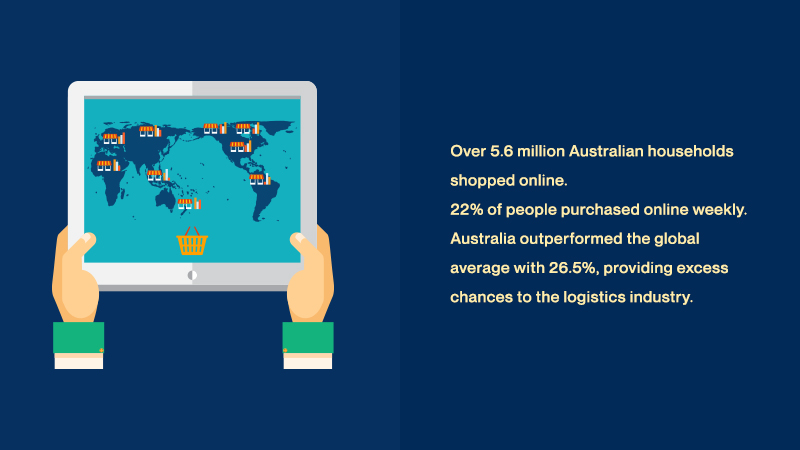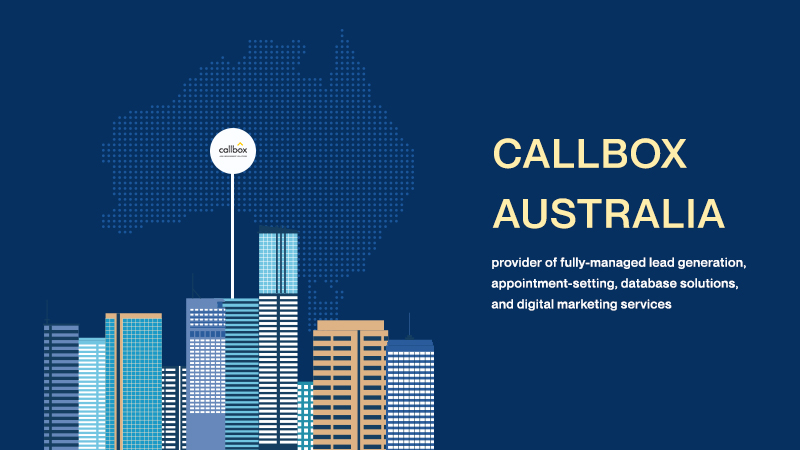Logistics, like any business out there, may not have all the necessary in-house resources. However, with the help of B2B service providers and supply chains like 3PL distributors, professional customer care teams, and skilled partners, businesses are able to improve customer experience.
Customer experience, when taken into the logistics context, isn’t simply defined by convenient order placements, but by a variety of other factors such as fast deliveries, easy returns, customer-preferred delivery timelines, real-time visibility throughout the order journey, and the reliability of the delivery personnel and support teams.
Looking for expert logistics marketing? We got you covered.
What do you want to learn?
One of the most effective ways for businesses that produce goods and/or services to maximize their budget is through supply chain management (SCM). Logistics, which manages physical, informational, and human flows to optimize them and prevent needless resource waste, also plays a significant part in supply chains.
The terms logistics and supply chain shouldn’t bring about confusion. As a more specific concept compared to SCM, logistics simply refers to the globalization of resource management, from every local unit to the complete network of production locations.
Supply chain management, on the other hand, is a more complex category. It involves logistics and performs end-to-end optimization, not only within the company but also with counterparties.
The goal of effective logistics management is to maximize the company’s competitiveness and profitability, as well as the network structure of the whole supply chain, including the end user. In this sense, the incorporation and implementation of innovations into the supply chain and logistics operations should strive to boost overall productivity among all of their participants.
The importance of B2B logistics
Meeting client demand is the primary purpose of the supply chain and logistics. So no matter how awesome your products/services are, they’d be useless if they don’t reach your customers the moment they need them. This is why logistics is crucial for your business’ success.
The importance of logistics doesn’t end there, however. It plays an important role in the daily functions of many core business processes. Read on to find out more:
Supply chain: Logistics guarantees that goods reach the right location at the right time. It also simplifies each stage of the process.
Delivery: Today’s marketplace evolved into a fast-paced and highly competitive one, and customers demand shorter delivery times. Logistics help maintain distribution networks, as well as the safe and prompt transportation of merchandise to meet customer demands.
Quality: Excellent logistics make use of dependable strategies that improve customer service. This means shortening delivery times or lowering costs by cultivating relationships with suppliers.
Efficiency: Through the use of real-time data that optimizes the supply chain’s efficiency, logistics enables tracking of cargo movement. One essential aspect that propels the logistics industry forward is stock management, or the ability to precisely track product information, check stock levels, and automatically generate reorder points.
Now, let’s go to business-to-business logistics.
Business-to-business (B2B) logistics refers to the process of shipping items or goods across business boundaries with the help of a professional shipping service provider. The logistics of such business models are fundamentally different from those between brands and end consumers.
B2B logistics often involves one or more financial transactions between two businesses when transferring goods from one place to another. Most companies rely on B2B service providers to provide a positive client experience.
It gives businesses the tools and resources they need to efficiently manage their supply chain and satisfy client needs while remaining competitive in the market. Understanding the benefits of B2B logistics and using the system will help your company stay ahead of the competition and be profitable.
However, it’s not unusual to see small and mid-sized logistics organizations experience difficulties with revenue growth. These issues are frequently connected to weak lead generation, a lack of sales predictability, and low sales conversion rates—the rate at which leads are turned into clients.
Want to know how a leading logistics company in Australia’s healthcare sector beat the marketing competition? Check out their success with Callbox’s Lead Generation Program.
In the section below, we will discuss the
The importance of B2B logistics

- Improved customer experience
Customers emphasize a few key components while shifting their belongings from one location to another. These include package quality, pickup flexibility, pickup cost, and pickup and delivery fees.
When it comes to increasing the customer experience, B2B logistics service providers must make sure they meet or exceed client expectations. The surge in online sales, especially in the post-pandemic era, caused the demand for a superb B2B logistics service to multiply tenfold., hence putting a lot of pressure on B2B logistics service providers.
Learn how to increase your client retention
- Market advantage
A direct-to-consumer brand may become a streamlined delivery and distribution machine with a robust logistics network, much like supply chain management. The tech-enabled B2B logistics services give businesses additional insights into order status, shipment, and order tracking.
Thanks to transparent logistical data, businesses can improve first-attempt deliveries, prevent shipments from going missing, and boost customer satisfaction, offering Business-to-business brands a distinct competitive advantage.
- Valuable time
The quote “time is money” rings true, especially in the business world. In the process of moving cargo, time is the initial inspection point and the most crucial logistical component. Selecting a quick and cheap method of freight transportation is of utmost importance too.
- Reduced overhead costs
With optimal B2B logistics, many transit, storage, and other freight expenses may be decreased. Organizations may customize their strategic incoming and outbound shipping strategies, methods, and routes using inventory tracking and demand forecasts.
As a result, businesses are able to save more money, which they can use to create new products or services.
Lead Generation in B2B Logistics

Logistics is the backbone of global trade. In the same sense, logistics lead generation is the foundation of every existing B2B supply chain and the rest of the B2B businesses in the logistics industry. Regardless of what your logistics and supply chain business sells, may it be products, services, or a combination of both, your success will be dependent on the quality and number of leads you generate.
Reaching leads, or decision-makers is one of the biggest challenges logistics providers face.
As business and consumer needs evolve, logistics providers must be quick to adapt to modern processes and technology to keep up with the ever-growing market expectations.
These providers must also communicate their brand message and value to the audiences that matter most – the manufacturers and retailers who depend on distribution services to deliver their products securely to shops and households.e
Post-pandemic era, B2B consumers make 70% of perspectives about a specific product online before engaging with a sales representative. It can be therefore implied that modern-day buyers prefer to do their own product research rather than be forced to learn about a brand. With different marketing channels to pick from, they can choose how and when to consume the data they have at hand.
Here is where the importance of digital marketing comes in. Providing knowledge-based and personalized content, employing chatbot and AI technologies, and boosting social media presence are all part of the engagement efforts that help boost lead generation.
Many activities in the logistics business are also simplified and secured by smart contracts, including agreement terms, fraud prevention, record keeping, payments, cash flow, and more. They also save money by eliminating the need for third-party processors. These help in the identification of roadblocks that could cause delays or disruptions in the delivery of goods and services.
Logistics Leaders trust Callbox for high-quality leads. Leverage our expertise now!
B2B logistics in Australia: What you need to know
These days, the e-commerce business has global reach, and Australia is no different. The best logistics firms in Australia have incorporated themselves into the highly developed e-commerce business. The application of modern facilities in warehouses, transportation systems, intelligence logistics software, and other logistics activities has supported this evolution.

A study reveals that the Australia freight and logistics market is foreseen to register a Compound Annual Growth Rate (CAGR) of more than 6% from 2022-2027.
The freight and logistics industry is concerned with the movement and transportation of commodities, whether by truck, vehicle, train, ocean liner, or other means. The said study includes data and qualitative analysis of the e-commerce, courier, express, and parcel businesses in Australia, as well as freight transportation rates and intermodal transportation.
One of the key factors that triggered exponential growth in e-commerce and B2B logistics in Australia is the COVID-19 pandemic. Factors like lockdowns, social distancing, and limited face-to-face interactions changed consumer behavior,-bringing the marketplace into the online platform. Hence, many smaller shops use the supply chain system to distribute their items directly to customers.

According to Australia Post’s Online Shopping Report, released in January 2021, over 5.6 million Australian households shopped online in December 2020, a 21.3% increase over the 2019 average. According to a 2020 worldwide research, 22% of people purchased online weekly, up from 17% in 2019. Australia outperformed the global average with 26.5%, providing excess chances to the logistics industry.
Outsourcing your B2B lead generation: Choose the experts
Any e-commerce business that looks to carry out logistics services needs a steady flow of leads to succeed. For most businesses in the industry, lead generation can feel like an Easter egg hunt. Fruitless, aimless searching can be draining and it wastes valuable time.
If you’re looking for more rewards and to ensure that your efforts are directed toward your goals, then you might consider outsourcing your lead generation. This will not only save you time but will also increase your sales.
Doing so entails seeking out the help of a trusted B2B lead generation services provider. For this reason, a professional lead generation agency for logistics can step in and ensure that your best efforts translate to pipeline growth and profits.
With our lead generation expertise, we at Callbox delivers new clients straight to your sales funnel for transportation, shipping, freight forwarding, and air cargo operations across multiple industries around the globe.
We provide you with a list of target companies from different industries, namely: Freight Forwarders, Manufacturing, Pharmaceuticals, Automotive, F&B, Electronics, and Wholesale Trade. We also connect you with relevant decision makers and influencers like Logistics Managers, Freight Forwarders, Customs Brokers, and Project Cargo Service Providers.
Serving as an intermediary between potential clients and logistics and supply chain solution providers, Callbox helps you build and implement strategic B2B lead generation and appointment scheduling efforts that are based on evolving trends, tactics, marketing tools, and industry best practices.
We produce excellent logistics leads via multi-channel marketing to help logistics salespeople in making the most of their time and focus on completing deals. The potential customers we target may include Logistic managers, Freight forwarders, Customs brokers, and Project cargo service providers.
As a renowned provider of lead generation services for the logistics and transportation industries, we can supply you with high-quality leads that you may chase in order to convert them into clients, increasing your revenues.
What makes Callbox the best B2B logistics lead generation provider in Australia?

Callbox Australia is a provider of fully-managed lead generation, appointment-setting, database solutions, and telemarketing services. To give our clients a complete lead generation experience, our team provides the following:
- List of prospective customers with current contact information (phone, email)
- Expert sales representatives that require little to no prospecting instruction
- CRM programs that can manage high volume call activity
- Using lead nurturing, social networking, and email marketing as part of marketing automation
By identifying the right leads to chase after, you can easily transport and locate goods from one Australian B2B business to another – may it be across Victoria, Queensland, or New South Wales – in a fast, accurate, and timely manner.
Most importantly…
The B2B logistics industry is fast evolving, and in order to keep up, you should keep tabs on the current trends and implement the changes needed. It might be quite tricky and risky, and we understand that you want to make sure that you’re making the right move to get a solid return on investment.
Callbox’s group of B2B professionals will help your logistics and supply chain business lower costs and improve efficiency through tried and tested lead generation strategies that delivered more than a decade and a half of quality performance. Request Pricing.













